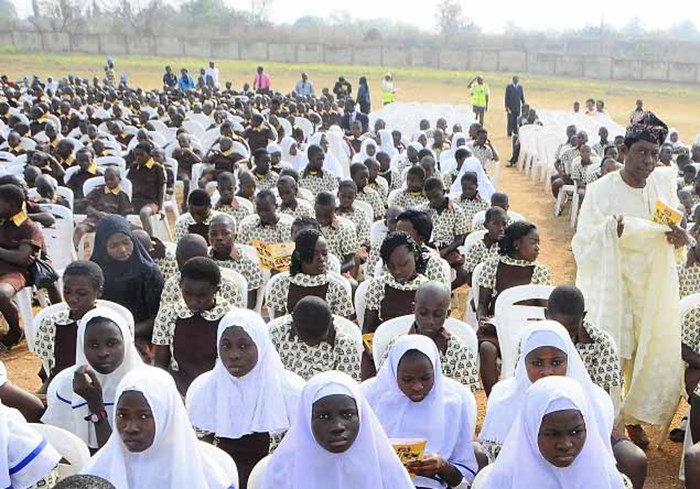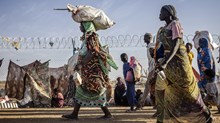
[Editor's note: While the Christian Association of Nigeria (CAN) previously opposed the merger of Muslims in Christian schools as an attempt to Islamize the state, it later reached a truce with the government. Meanwhile, traditional worshippers in Nigeria warn CAN against protests of the education reforms.]
(MSN) Educational reforms in Nigeria's Osun state have created religious tensions in schools, resulting in Islamist youths beating a Christian principal unconscious last month, Christian leaders said.
The state in southwestern Nigeria reclassified schools in September, thus merging those originally founded by Christian missionaries with other schools. The mergers, including the blending of single-sex schools with co-ed schools, require Muslims to attend the institutions of Christian heritage, the Christian leaders said. The Christian "missionary" schools, taken over by the state in 1975, have been considered public schools since then.
[Editor's Note: CT previously reported on how the fees charged by Christian missionary schools in Nigeria were sparking conflict.]
Among tensions created under the September changes, Islamist youths armed with axes and cutlasses on Nov. 25 attacked staff members and students at the Baptist High School-Ejigbo after administrators enforced a ban on the hijab, a covering for head or body used by Muslim women. Injured teachers and students received treatment at Baptist Medical Centre in Ejigbo, and principal Layi Oguntola regained consciousness only after hospitalization, the Christian leaders said.
The attackers, who also tried to burn down a Baptist church on Nov. 25, said they were upset that school officials had stopped Muslim students from wearing the covering, church leaders said. After school authorities on Nov. 22 sent a Muslim female student home for violating the school ban on the covering, the Islamists on Nov. 25 stormed the premises at about 8 a.m., heading first for the office of the principal.
The high school in Osun, a state usually free of religious tensions, was established by the Nigerian Baptist Convention. The Rev. Bayo Ademuyiwa, conference president of the 35 Baptist congregations in the area, said the church had no objection to the government's attempt to equip schools, but that it would not allow attempts to erase its identity and heritage through policies aimed at enthroning Islam.
"Our forefathers and missionaries sacrificed their lives, resources and everything to establish schools, reputable schools with morals and values, and that is why the Baptists in Iwo land are here to protect our schools," Ademuyiwa said. "Baptists in Iwo land say no to merger of schools, and Baptists in Iwo land say no to the use of the hijab in Baptists' schools."
Sunday Akere, Osun state commissioner for information, confirmed the attack on the Christian high school.
"It is unfortunate that this happened at a time when we are already achieving peace in the area of schools' reclassification," Akere told Morning Star News.
Folasade Odoro, Osun State Police spokesman, also confirmed the attack.
"We received a report on the attack, and we have brought the situation under control," Odoro said.
The Nigerian Baptist Convention had rejected the Osun government decision to send Muslim students to schools of Christian heritage, saying they would not allow hijab-wearing students to attend. Convention leaders said the new education policy of state Gov. Rauf Aregbesola, a Muslim, was an attempt to Islamize schools and force Islam on Christians.
In a peaceful protest on Oct. 2, the Baptist leaders held a worship service in the chapel of the high school and called on the government to rescind the policy, which they called an effort to erode the gains of Christianity by forcefully taking over Christian schools.
The Rev. Elisha Ogundiya, chairman of the Osun state chapter of the Christian Association of Nigeria, said the church would not compromise.
"We observe that the foundation of Christian faith is being threatened by some of the state government policies, especially in the education sector, which the church is strongly averse to and is not ready to compromise," Ogundiya told Morning Star News. "The Christian Association of Nigeria, on behalf of the entire Christians in the state, unanimously resolved that the state government should stop the merger of schools forthwith; reverse the changing of single-sex schools to co-educational schools in order to preserve the religious character of each school; and return all mission schools back to their original founders."
The state governor, however, said in a statement shortly after the protest that the Christian leaders' request for the policy to be rescinded would not be granted.
"No single group, organization, individual, religious or social body's interest would suffer as a result of the ongoing re-classification and reform," Aregbesola said in a statement through his media aide, Semiu Okanlawon.
In an interview with the Nigerian newspaper Leadership, Aregbesola said Osun's Yoruba people – Christians, Muslims and adherents of traditional religion – have long lived peacefully among each other.
"If Yorubas have been living together like this, where then is the basis for this allegation that we mixed Christians with Muslims?" he said in the interview.
Christian leaders told Morning Star News that the Nov. 25 attack was a clear indication of a hidden agenda by the Muslim-controlled government and Muslims in the state to Islamize Christians.
As a result of the attack, the Baptist High School and other Christian schools in the town were closed. Security agents and armed policemen were deployed to contain the spread of attacks on Christians as Islamists had tried to set fire to the United Baptist Church.
While most Muslims in Nigeria live in the northern states, Osun has a large population of Muslims, Christians and adherents of indigenous beliefs. Christians make up 51.3 percent of Nigeria's population of 158.2 million and live mainly in the south, while Muslims account for 45 percent and reside primarily in the north, according to Operation World.

Support Our Work
Subscribe to CT for less than $4.25/month


















